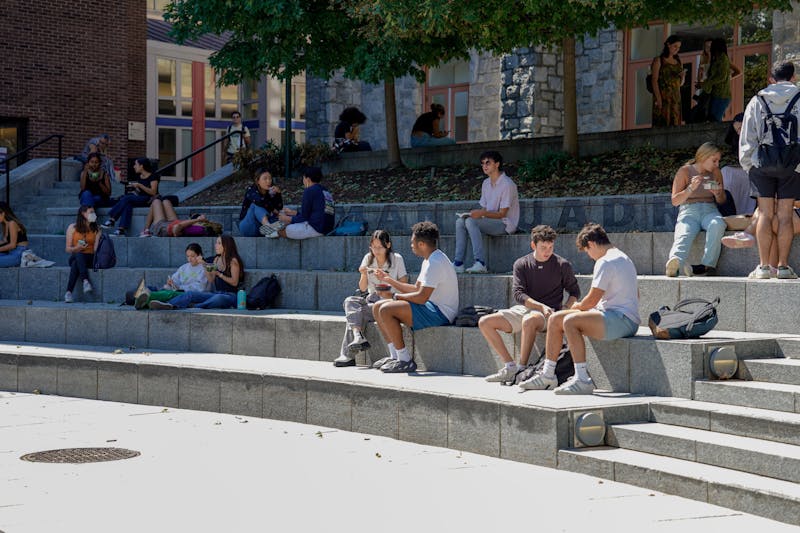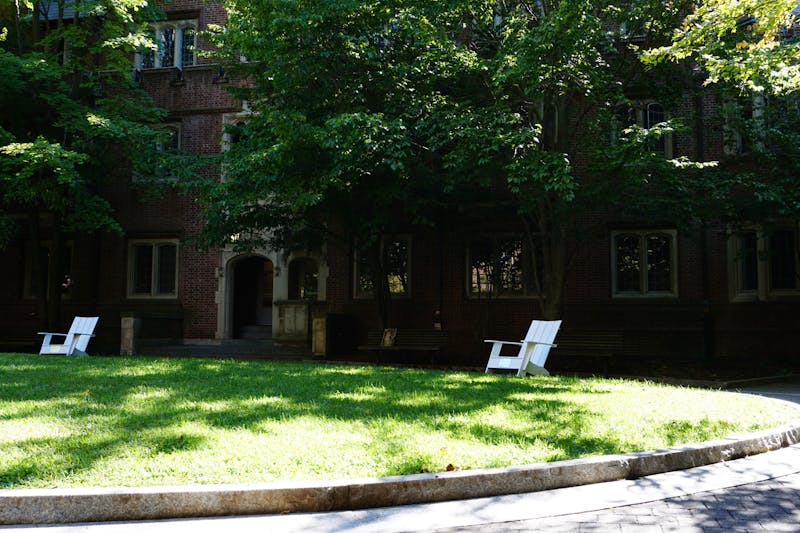
Here are four clear and entirely helpful guidelines to live by as we all excitedly come back to campus or encounter it for the first time:
- Be Yourself (But also, blend in! You don’t want to stand out too much.)
- Make New Friends (But don’t forget to cherish the old ones — just not too much, you don’t want to seem clingy.)
- Get Involved (But remember, burnout is real, so maybe take it easy.)
- Work Hard (But don’t forget to relax! Because, you know, balance.)
The advice that often fills the pages of op-eds here and in newspapers across campuses, especially during inflection points like the start of the school year, is internally contradictory and hard to traverse. In many ways, we all know what we’re going to hear. At the same time, many may even find the criticism of this classic advice itself to be cliché. The irony being that even dismissing the advice as trite has become, in its own way, predictable — and so the cycle continues.
This tension between simply letting college “happen” and attempting to use help to evade any major mistakes is the crux of college life and really, any roughly defined experience. There is so little non-academic advice that will actually help. Sure, I have some thoughts that I’ve written down, but — believe me — that doesn’t make them useful for everyone. Life, particularly college life, resists a one-size-fits-all solution.
At the end of the day, certain experiences can’t be fully conveyed to others or fully understood until we live them ourselves. As my time at Penn races toward its inevitable conclusion, I’ve begun to appreciate the long game. Contrary to the constantly discussed pressure-cooker mentality that often defines our academic years, life is long (please God). Few decisions are truly final, and the stakes are rarely as high as they seem at the moment.
Whether you choose to be yourself or strategically blend in, whether you’re constantly expanding your social circle or becoming ever closer with a few close friends, whether you dive into every extracurricular or cautiously limit your commitments — it won’t make or break your experience here. What matters most is how you respond to the ebbs and flows, and how honestly you assess your needs and desires when you sense it’s time for a change.
If you’re skeptical of the cynicism, take it from Robert Frost’s iconic poem “The Road Not Taken,” which echoes this sentiment (take a look). Many people, including Ford Motors, often misinterpret the poem’s final stanza, arguing it encourages us to continuously embrace non-conformity and carve out our own unique path in life. However, Frost’s real focus is on the ultimate ambiguity of choice. He emphasizes that both paths, equally fair, “were worn … really about the same” and portrays the speaker as an older man “telling this with a sigh,” embellishing his life’s choices to entertain his children. Our takeaway is that most decisions only seem life-altering in hindsight, shaped more by how we choose to remember them than by the actual choices we made.
Even on a personal level: For many years I ran through business biographies, thinking that if I absorbed enough lessons from corporate titans, I’d avoid the pitfalls that derailed others. I’m certain that I was wrong. If I’ve learned anything here, it’s that no amount of second-hand knowledge, no matter how good it sounds, will substitute for the firsthand experience of navigating your own path. College, like life, is too nuanced and rich in detail, to be distilled into a set of universal rules. What worked for one CEO in a specific context won’t necessarily work for us in the vastly different landscape of a university.
So here’s my advice: Close the advice columns. Instead, dive into your own experiences, and let life happen. Sure, try new things, embrace the possibility of failure and anything else older people may tell you ad nauseam, but make sure to discover what works for you. Because that’s where the real value of college lies — in the active, not the passive. Sometimes, the best piece of advice is no advice at all.
AKIVA BERKOWITZ is an Engineering senior studying computer science from Silver Spring, Md. His email is akivab@sas.upenn.edu.
The Daily Pennsylvanian is an independent, student-run newspaper. Please consider making a donation to support the coverage that shapes the University. Your generosity ensures a future of strong journalism at Penn.
Donate












